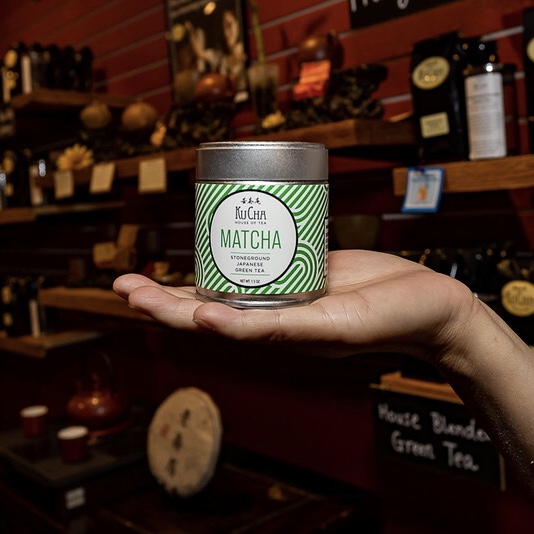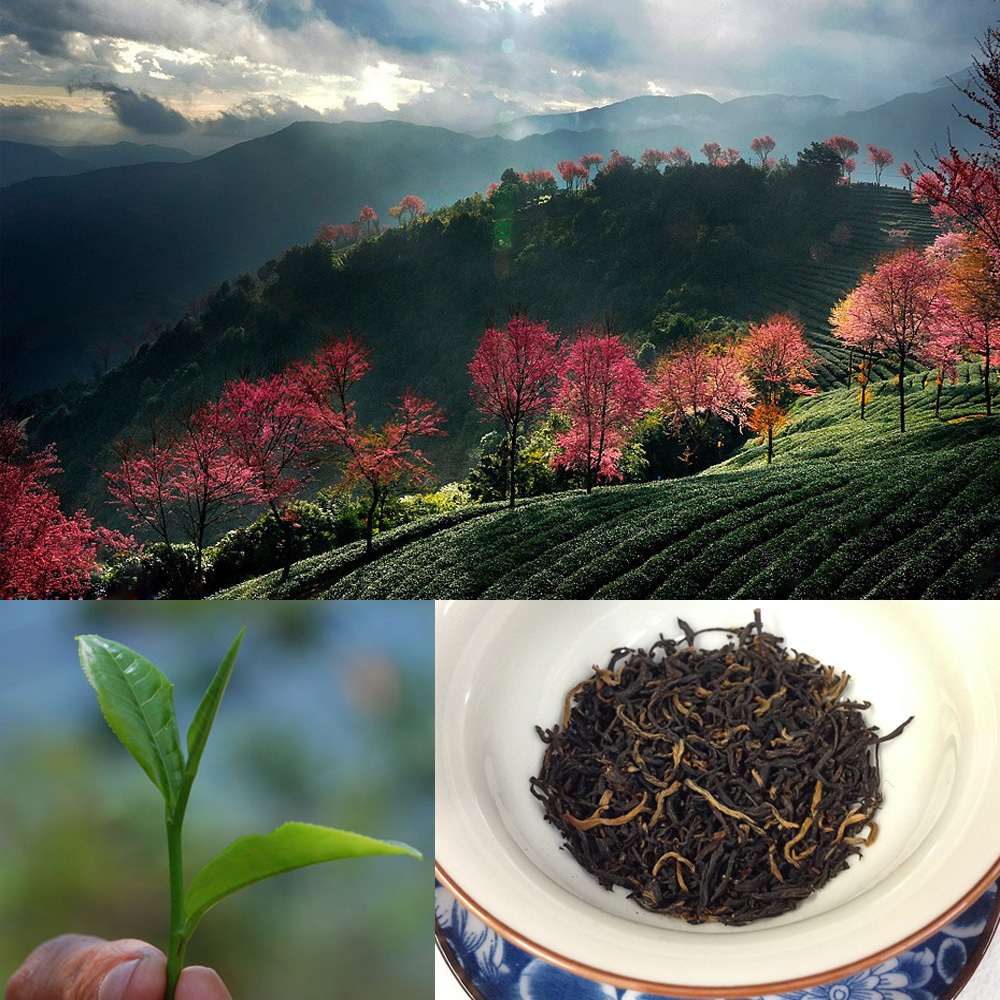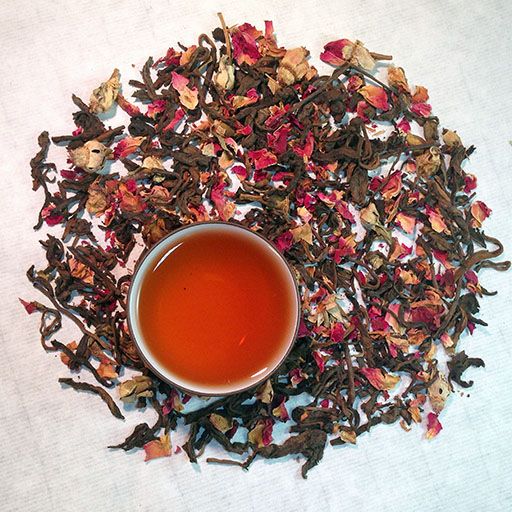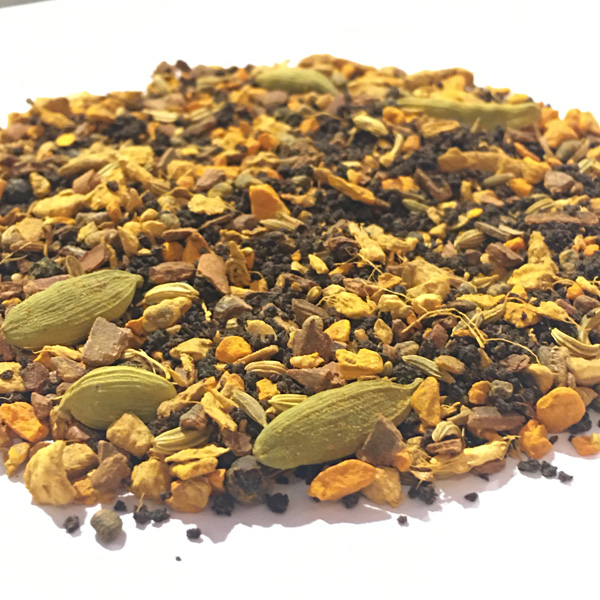Celebrate Love and Hearts This Valentine’s Day With Tea!
Boxes of fine chocolates. Bouquets of red roses. Champagne toasts, candy hearts and candlelit dinners. Valentine’s Day delivers a bounty of pleasures in the midst of February’s trudge of cold days. We treasure the holiday for its mid-winter lift. And as love’s only holiday, it’s important!
The big day, which has been celebrated since the 14th century starting in England, fixes on heart iconography. Why the heart? Because that’s where many people experience love—deep in the thumping organ in our chests that guides our health.
But the fixation on the heart works on another level, too. Strong hearts help bring about vigor. Suffering, weak hearts, on the other hand, lead to myriad unfortunate conditions. When it comes to our cherished ones, doing our bit to boost their heart fortitude serves as a powerful act of love.
This is where tea enters the Valentine’s Day party. In addition to its diversity of spectacular flavors, aromas and textures, tea also helps ripen stout health. That includes the organ that determines so much about our vitality: the heart.
For 2024’s season of holiday-inspired love, consider adding tea to your world, as well as the daily routines of loved ones. Tea makes an outstanding gift, one that is especially relevant for Valentine’s Day.
This Valentine’s Day celebrate love—and those vital hearts!
Heart Healthy Tea for Valentine’s: Matcha

A wealth of scientific studies point toward green tea’s health benefits, including those that address the heart. For example, as reported in Harvard University’s “Heart Health” newsletter, studies suggest that green tea may lower LDL cholesterol and triglycerides, which helps boost heart vigor. In fact, one study of 40,530 Japanese adults concluded that sipping more than five cups of green tea a day helped lower risk of death due to heart attack or stroke by 26%. That’s a big difference.
While all green teas contribute toward healthy hearts, matcha may represent the most potent of greens. All other teas come from whole tea leaves that are brewed, after which the leaves are discarded. But matcha is powdered. Matcha drinkers as a result consume the entire leaf, rather than just the liquid from steeped leaves. The addition of the actual leaves to the consumed beverage delivers concentrations of botanicals that otherwise don’t emerge in brewed tea.
Drink your matcha! Not only is it healthy and delicious—it’s beautiful, too.
Heart Healthy Tea for Valentine’s: Golden Monkey Black

Green tea has received loads of attention for its heart health properties. But black tea, too, helps promote heart hardiness. The style of tea, for one thing, contains theaflavins, which help lower blood cholesterol, according to UCLA Health. It also supports an abundance of flavonoids, which are the same antioxidants found in nuts, dark chocolate and red wine. Flavonoids reduce the risk of heart disease by 8% according to studies. And sipping black tea every day helps reduce blood pressure, and mitigate risks for heart attacks and strokes.
Our Golden Monkey black tea, from China’s southern Fujian Province, brews a deep golden-amber color. The taste arrives as smooth and sweet, with a touch of bitterness upfront. The tea’s name comes from the leaves, which are elongated, twisty and black and gold in color. Golden Monkey stands as one of our favorite black teas, with a rich chocolate aroma and malty mouthfeel that dissolves into a lingering sweetness.
Heart Healthy Tea for Valentine’s: Rose Puerh

People around the world drink traditional Camellia sinensis tea for many reasons, including flavor, aroma, culture, effects like energy and mental clarity, and health. The famous style of fermented tea known as puerh, however, serves an especially prized tea for people keen to sip their way to vigor. And puerh enthusiasm ranks particularly high in China, where most puerh gets grown, harvested and fermented.
People across the country do sip puerh for its earthy flavors and fragrances—in fact, it is one of the top teas for connoisseurs, some of whom collect and age puerh in the manner of fine wine. But puerh’s advantages extend beyond the culinary. Passion for the style finds a foundation, too, in its health-giving properties.
The tea’s unique ability to help lower cholesterol, which is key for heart health, relies in part on lovastatin. This chemical found in puerh is also a prescription drug used for cholesterol mitigation—among other things, lovastatin helps lower blood fats called triglycerides and low-density lipoproteins (LDL) cholesterol, and even increase the “good” cholesterol, high-density lipoprotein (HDL). It’s unclear how puerh developed lovastatin, but researchers theorize that bacteria involved in the fermentation process may yield lovastatin. Regardless of how it got into puerh, its presence is most welcome!
Our rose puerh adds fragrant rose petals to earthy puerh, a combination that leads to beautiful flavors and additional health benefits. Rose provides a wealth of Vitamin C as well as antioxidants that boost health.
Heart Healthy Tea for Valentine’s: Organic Sunrise Chai

We thank the tea deities, wherever they may roam, for the creation of chai. This style of tea, which emerged in 19th century India, combines black Camellia sinensis with a panoply of spices, from fennel to coriander to cinnamon, nutmeg and pepper. As we already know, black tea serves our hearts’ health. And so do many of the spices used to craft this special tea.
One especially heart-wonderful spice is turmeric, the rhizome native to India, where more than 80% of the bright orange plant gets cultivated. Turmeric adds a distinct flavor to every dish it touches: pungent, with notes of ginger, pepper and mustard. It’s also quite healthy.
The rhizome’s health benefits revolve largely around curcumin, a compound found inside the plant. Curcumin offers both antioxidant and anti-inflammatory properties, according to Johns Hopkins Medicine Health. And studies suggest that the botanical’s profound anti-inflammatory powers may even help reverse the heart disease process.
Good news, tea lovers. Our Sunrise Chai comes loaded with turmeric! This exotic, delicious tea also incorporates ginger, cinnamon, clove, cardamom, fennel, black pepper and cayenne. It’s scrumptious—and fantastic for driving home heart health.

